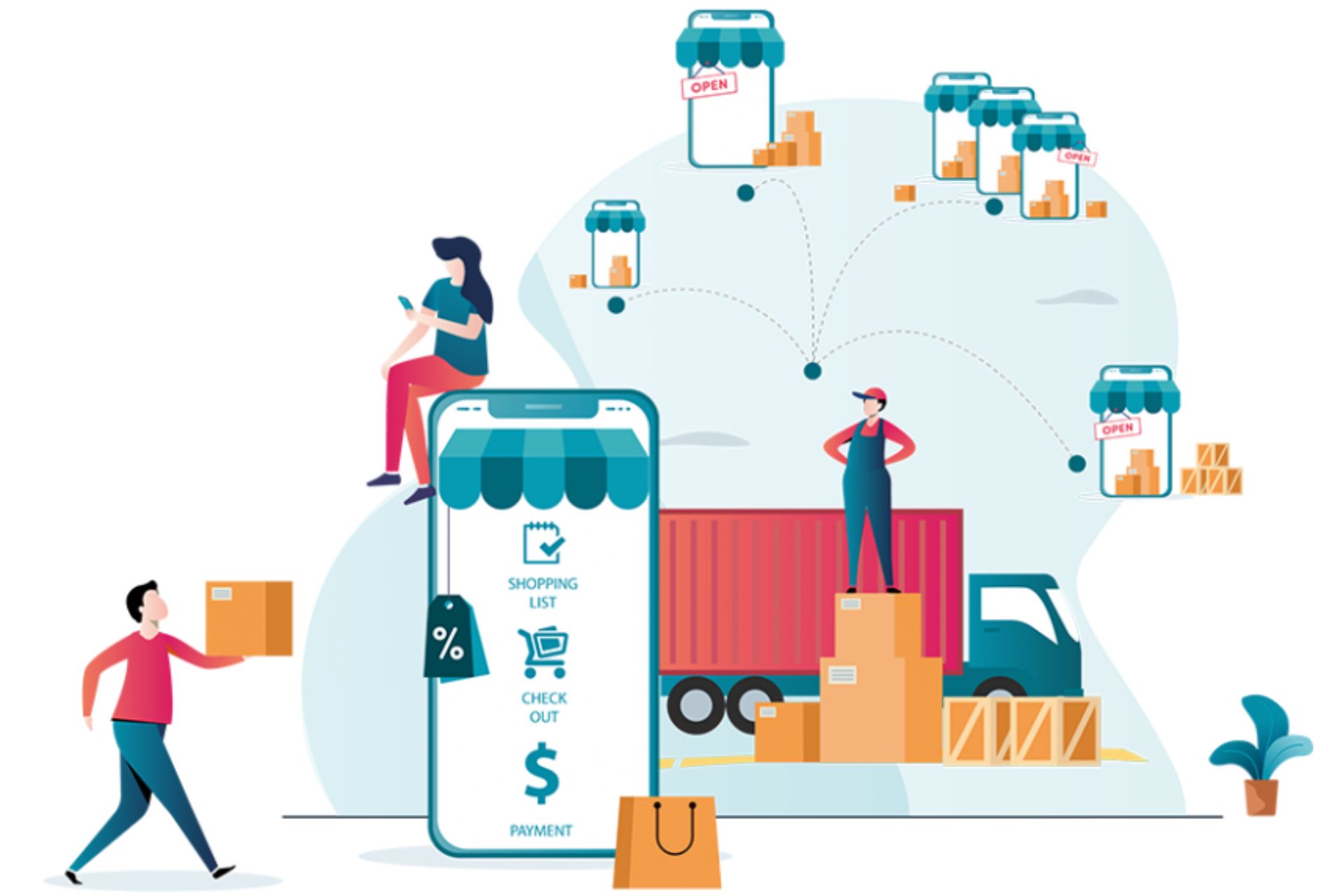#1 Ecommerce & Marketplace Course with Certification
Classroom Training | Live Online Session
Start selling on marketplaces like Amazon & create your own e-commerce website on Shopify with this Online & Offline Ecommerce & Marketplace Course. Get familiar with all the tools and strategies with this course.

1-on-1
Mentoring Sessions
Beginner
Course Level
Flexible Per Course
Timing
1000+
Students Trained
Ecommerce & Marketplace Course Details
Industry-Relevant Curriculum
1:1 Mentoring Session with Expert Trainers
No Prior Experience/Knowledge required
Access to LMS
Dedicated Q&A Support & Doubt Solving Sessions
Practice Tests & Assignments
Get Brochure Now !
Ecommerce & Marketplace Course Syllabus
This online & offline e-commerce & marketplace course syllabus takes you through how beginners sell on Amazon, the different Amazon’s policies for sellers and also teaches you how to set up your own Shopify store.
- How E-Commerce Works?
- Identifying What You Want To Sell
- Picking The Right Platform
- Different Types Of Marketplaces
- Introduction To Dropshipping
- Benefits Of Selling On Amazon
- Different Selling Models
- Pricing & Fees
- Picking The Right PlatformShipping & Packaging Partners
- Refund & Returns Policies
- How To Avoid Suspension
- Analyze Your Amazon Store
- Introduction To Amazon A9
- Breakdown Of Product Pages
- Uploading & Categorizing Products
- Rules For Uploading Product Images
- Rules For Writing Product Description
- How Paid Marketing Works On Amazon
- Why Shopify
- Different Shopify Plans
- Important Elements Of Shopify
- Customizing Shopify Store Settings
- Shopify Themes
- Planning Your Shopify Store
- Products & Inventory Management
- Shopify Experts
- Shopify Apps
- Managing Customers On Shopify
- Marketing On Shopify
- Email Marketing For Shopify
- Discount Coupons On Shopify
- Analyzing Your Shopify Store
- Tools For Competitive Analysis
- E-Commerce Store Optimization Tools
- Tools For Search Engine Optimization
- How To Win The Buy Box
- How Oberlo Works
What Our Students Say
 “I enrolled for ProiDeators SEO, Social Media short-term certification courses. I am satisfied with this course and teaching. Also, I got all certificates from there for SEO & Social Media. I would totally recommend going for these short-term certification courses.”
“I enrolled for ProiDeators SEO, Social Media short-term certification courses. I am satisfied with this course and teaching. Also, I got all certificates from there for SEO & Social Media. I would totally recommend going for these short-term certification courses.”
– Pooja Yadav
Student of SEO & Social Media
 “Best short term course for Website Development & Google Analytics. Excellent institute for practical knowledge. It gives you quality as it promises. Specially the teachers are very good who teach with examples that make it easy to understand.” Best Digital Marketing Courses Institute.
“Best short term course for Website Development & Google Analytics. Excellent institute for practical knowledge. It gives you quality as it promises. Specially the teachers are very good who teach with examples that make it easy to understand.” Best Digital Marketing Courses Institute.
– Pratik Shirore
Student of Masters in Digital Marketing, India
Ecommerce and Marketplace in Digital Marketing Training Courses at Thane, Mumbai – India
Ecommerce marketing is the practise of purchasing and offering services and items online. It involves doing business online, which entails mostly using an online platform, website, or app. E-commerce has changed how firms operate and enables them to use online marketing to reach a worldwide audience. With just one click, it enables brands to interact deeply with their consumers and contact them where they feel most comfortable. Nowadays, small businesses can offer their goods through larger platforms by simply registering their businesses in online marketplace websites. Online stores, product catalogues, shopping carts, checkout choices, order fulfilment, payment processing, customer service, data analysis, etc. are typically found on e-commerce websites.
What is marketplace and how it is beneficial in ecommerce businesses?
A marketplace, in the context of ecommerce, is an online platform that brings together multiple sellers and buyers in a single location. It acts as an intermediary, connecting buyers with sellers and facilitating transactions. Marketplaces provide a wide range of products or services from various sellers, offering customers a diverse selection. Some well-known examples of online marketplaces include Amazon, flipkart, meesho, swiggy, eBay, and Alibaba.
It is easy to use platform and can be learned from the ecommerce marketing concept. People from different places and location participate in marketplace and get an opportunity to sell their product and services. This ecommerce platform brings different seller and buyers at one place to buy and sell the product. Seller get the opportunity to run the ads campaigns on these platforms to highlight about their trending products, new arrivals etc to reach their potential audiences.
Here are the marketplace features that help sellers to grow:
Seller Accounts: Sellers can create accounts on the marketplace platform, list their products or services, and manage their inventory and pricing. Sellers need to share the basic information about their business to create a professional account in the ecommerce portals.
Product Listings: Sellers can create detailed product listings, including images, descriptions, prices, and other relevant information. Customers can search and browse these listings to find products of interest. They can even list new arrivals, discounted products and seasonal products to promote their brands.
Order Management: Marketplaces handle the order management process, including order placement, payment processing, and order fulfillment coordination between sellers and buyers.
Ratings and Reviews: Customers can leave ratings and reviews for products and sellers, providing valuable feedback and helping other buyers make informed decisions.
Search and Filtering: Marketplaces provide search and filtering functionality, allowing customers to narrow down their product search based on various criteria such as price, brand, category, or seller ratings.
Trust and Security: Marketplaces implement measures to establish trust and security, such as buyer protection programs, secure payment gateways, and verification processes for sellers.
Customer Support: Marketplaces often offer customer support to address inquiries, disputes, or other issues that arise during the buying process.
Marketplaces provide benefits for both sellers and buyers. Sellers can leverage the marketplace’s existing customer base, infrastructure, and marketing efforts, while buyers can access a wide variety of products, compare prices, and benefit from competitive offerings. If you are the one who is eagerly waiting to learn how to use marketplace for your business and list down your product then you must learn masters in digital marketing course and be the certified sellers.
Therefore ecommerce refers to the online buying and selling of goods and services, while marketplaces are online platforms that connect multiple sellers and buyers.
